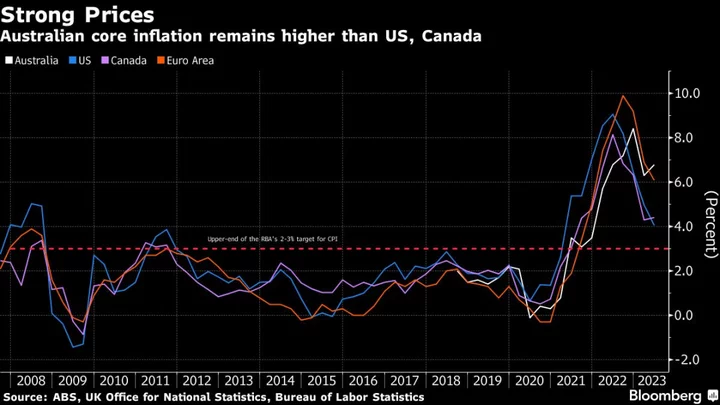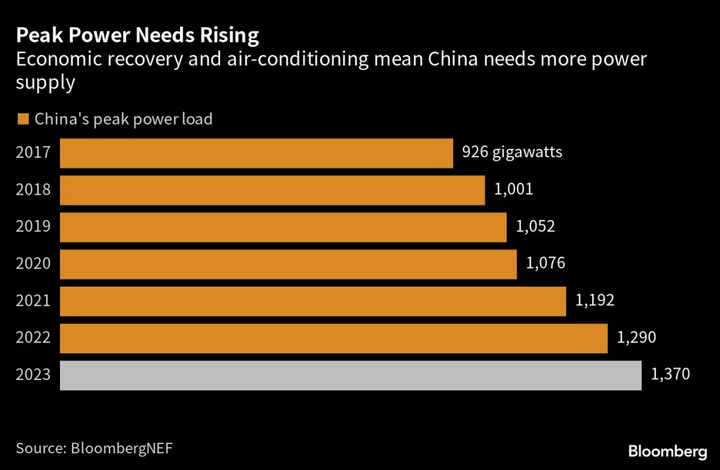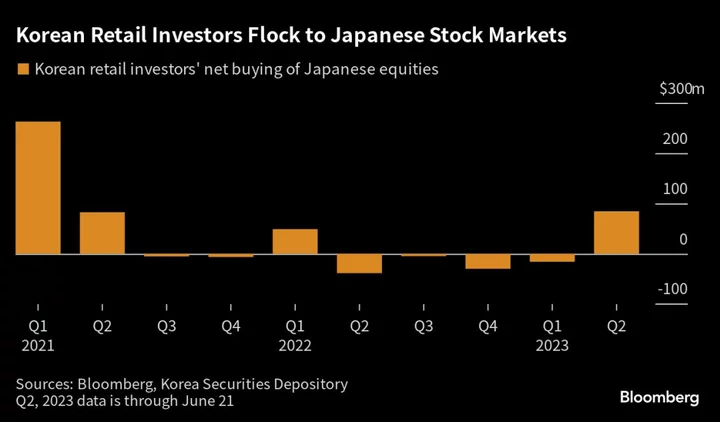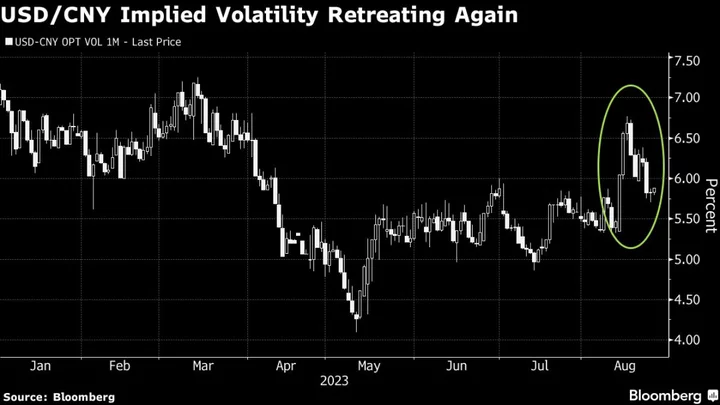Australia’s central bank weighed the risk of upside surprises to inflation from a tight labor market and rising home prices when it decided to deliver a surprise interest-rate increase this month.
The Reserve Bank’s board discussed the case to pause but concluded the “finely balanced” arguments were in favor of raising the cash rate to 4.1% — a level not seen since April 2012. The decision came after a monthly inflation indicator for April unexpectedly accelerated.
“The recent data suggested that inflation risks had shifted somewhat to the upside,” the minutes of the RBA’s June 6 meeting showed Tuesday. “Given this shift and the already drawn-out return of inflation to target, the board judged that a further increase in interest rates was warranted.”
The close nature of the decision and strong case for a pause prompted traders to pare bets the RBA will hike twice by year-end. The Australian dollar dropped while the yield on policy sensitive 3-year notes erased a gain of as much as six basis points while stocks extended gains.
The central bank’s surprise June hike reflects accelerating services inflation, a tight labor market and a stabilization in home-loan approvals which suggest that financial conditions may not be as tight as previously thought.
Another reason to extend its tightening cycle included disappointing productivity growth over recent times, an outcome that threatens to keep unit labor costs elevated. Board members discussed the possibility of implicit indexation of wages to past high inflation and the chance for it to become widespread. They also observed that some firms were indexing their prices, either implicitly or directly to past inflation.
“These developments created an increased risk that high inflation would be persistent,” the minutes showed.
Members also discussed a decision by the country’s industrial relations umpire to raise the national minimum wage by 5.75%, which would add directly to the wage price index in the third quarter.
Governor Philip Lowe has said RBA decisions are now driven by data — which has proved volatile — and the key issue is consumer prices running at around 7%, versus a 2-3% target. RBA forecasts show headline CPI won’t reach the top of its target until mid-2025.
Even after this month’s hike, Australia has lagged global counterparts in its policy response to higher prices, having raised rates by 4 percentage points since May 2022, well below that of New Zealand and the US, which pushed ahead with hikes in the face of banking turmoil and financial market volatility.
Economic data since the June 6 meeting has been mixed. Gross domestic product for the first three months of the year showed the broader economy slowed at a faster-than-expected pace. Timely data out last week showed Australian business confidence slipped into negative territory and consumer sentiment hovered near “recession lows.” On the flip side, employment smashed expectations in May and the jobless rate surprisingly declined to 3.6% to stay within its recent 3.4%-3.7% range.
Economists say the picture has become more challenging lately with a recession — defined as two consecutive quarters of economic contraction – now a real possibility. Still, economists see the RBA lifting rates again as they battle to gain control over inflation.
Goldman Sachs Group Inc. is among the most hawkish forecasters, predicting a peak RBA rate of 4.85% while Commonwealth Bank of Australia expects the central bank will now stand pat with data expected to show further slowing in inflationary pressures.
That’s a hope the RBA is holding on to as well, with the minutes showing the case for leaving the cash rate unchanged rested on a slowdown in activity and expectations that “significant” hikes to date would further weaken economic growth.
Members also discussed downside risks to inflation, including falling commodity prices and international shipping costs.
“In light of these considerations, members discussed the possibility of holding the cash rate unchanged at this meeting and then reconsidering at subsequent meetings, with the benefit of additional data,” the minutes showed.
“Members recognized the strength of both sets of arguments, concluding that the arguments were finely balanced. They judged, though, that the case to raise the cash rate at this meeting was the stronger one.”
--With assistance from Matthew Burgess and Georgina McKay.
(Adds market reaction in fourth paragraph)









